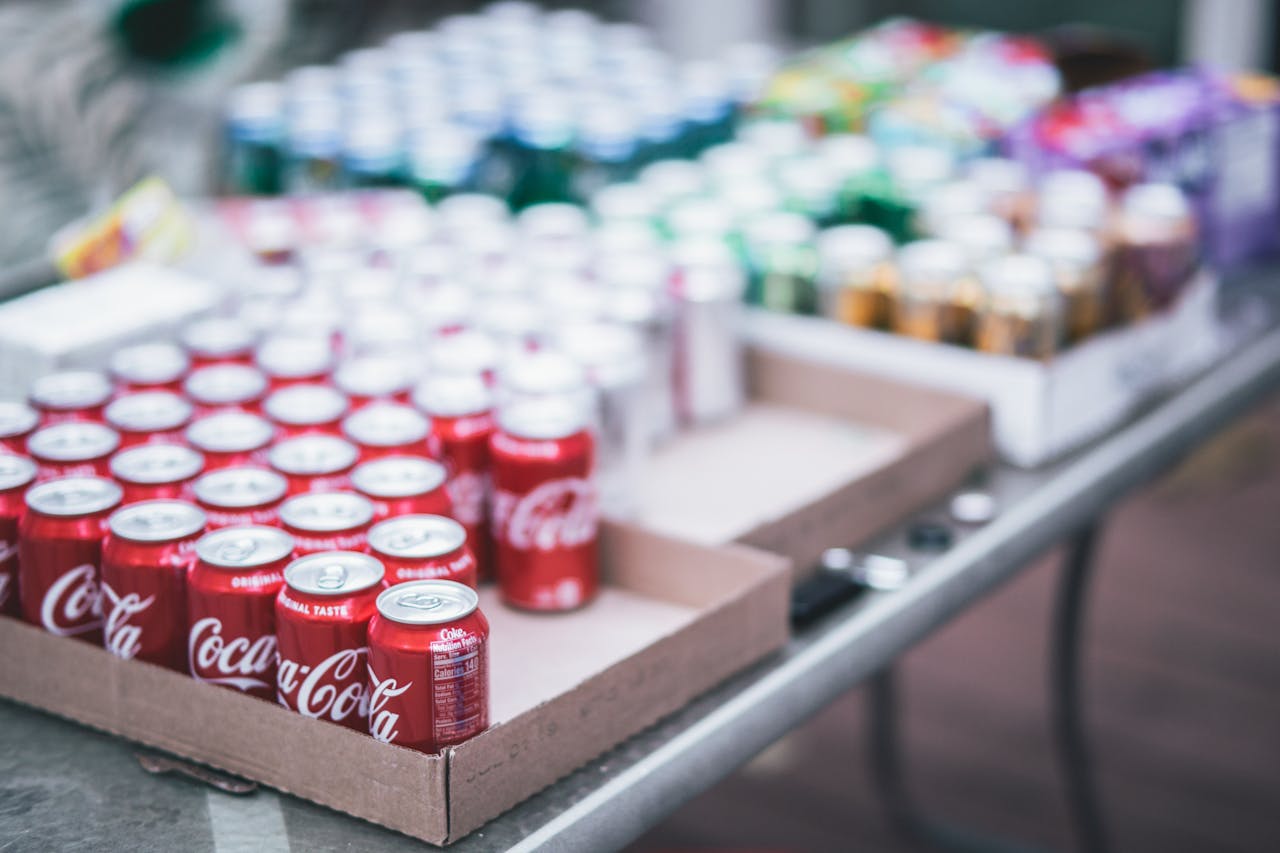
 By Arielle Levitan M.D. and Romy Block M.D.
By Arielle Levitan M.D. and Romy Block M.D.
Feel like you are dragging much of the day? Need a nap, all the time? Don’t have the “get up and go” you once did? But maybe you don’t have the time to pass the day a way resting in a sunny pasture. When it comes to energy, Vitamins can play a key role. People often ask us what vitamins to take for energy and tiredness. Many common vitamins play essential roles in making our various cells function properly. If your cells can’t efficiently do their jobs it is no surprise that your whole body feels the effects. Taking the vitamins can help you feel better.
Fatigue or low energy can be caused by a variety of causes, vitamin deficiencies representing just one. Other possibilities include insufficient sleep, thyroid issues, and other medical conditions. See your doctor to help diagnose and treat these issues. There are a number of vitamins to take for energy. The B vitamins are often implicated. But low iron is perhaps the most common cause for fatigue. Does iron give you energy? It turns out that taking iron for energy can be a simple solution if done correctly.
Iron deficiency is a very common issue today, particularly in women. Women’s bodies are constantly shifting and changing. Iron loss is a normal part of this cycle. We require more iron during pregnancy and while nursing our children. Those who get menstrual periods, regularly lose blood and iron with menstruation. Heavier periods account for even more Iron loss. All of these factors add up. Childbearing and monthly menses can deplete women’s iron stores for many years to follow.
Men too can be iron deficient due to less iron in their diets. In some instances men or women can have unknown (or “occult”) blood losses through their GI tracts such as bleeding ulcers or colon polyps that let off small amounts of blood. These issues need to be addressed by a physician.
Any symptoms of blood in your stool or dark black, tarry stool should be addressed immediately. In addition taking aspirin or Non Steroidal Antiinflammatory drugs regularly should be avoided. These are products such as Ibuprofen or Naproxen which are found in many over the counter pain relievers. If taken in high doses or frequently they can lead to ulcers or other problems in the GI tract that lead to chronic blood loss. This can happen with minimal symptoms and sometimes no pain at all. In fact, sometimes fatigue from iron deficiency is the only sign.
Iron is one of the essential vitamins to take for energy. It is mainly found in your red blood cells as Hemoglobin. Your body uses iron to hold on to oxygen in your blood and transport it to your tissues. At the cellular level, iron is used then to make energy and to fuel enzymes. Therefore, if you have low iron, you are essentially depriving all of your body’s cells of oxygen. No wonder you feel so terrible!
Not necessarily. Routine blood testing usually includes a CBC (complete blood count). This includes the hemoglobin and hematocrit levels, i.e. the cells which are carry iron and are used by the blood to transport iron all over the body. However seeing a low hemoglobin or hematocrit (“anemia”) usually means the iron deficiency is very severe or long standing. Earlier stages of iron deficiency are more subtle and require special testing of specific iron levels and Ferritin levels which reflect how much iron your body has stored up. These are not routinely done.
Many people with iron deficiency (even at the early stages, not reflected in a blood count) report symptoms of fatigue, brain fog, lack of energy, depression and even hair loss. In more severe cases (when the hemoglobin is low) iron deficiency anemia can cause shortness of breath, chest pain, dizziness or lightheadedness. Therefore, replacing this important element is essential.
Some of us can replenish our iron from a well rounded diet. However, the American diet has changed significantly over the last few decades. Our “healthier diet,” geared towards prevention of heart disease, now contains significantly less red meat than it once did. Most of us are eating red meat on much rarer occasion than we used to. Fabulous as this may be for our cholesterol and heart health, it has actually contributed to widespread iron deficiency. Red meat is not the only dietary source of iron, but it is one of the best.
While some fruits and vegetables (spinach, broccoli, beans prunes, raisins) do contain Iron sources, they have lower amounts and are not as well absorbed. Therefore, vegetarians are at high risk for Iron deficiency. Contributing to this confusion are antacids and stomach medications which can also decrease the absorption of your Iron intake. That means you may not actually be getting credit for the Iron that you do take in.
If you can not obtain enough iron via diet, a properly balanced custom vitamin regimen is your best bet for iron repletion. An all in one vitamin containing iron is a great way to get vitamins for energy and tiredness. Iron replacement in supplements can be found in many forms. The most commonly found forms are Iron sulfate, Iron Gluconate and Iron Fumarate. The dosing is variable and can get confusing because the amount of elemental iron (actual iron you get) is different for each type of iron replacement. For example, a 325 mg tablet of ferrous Gluconate contains only 36mg of elemental iron. However, in our experience most of the commonly found iron replacement products commonly cause side effects in the form of upset stomach, constipation and abdominal pain. People frequently stop taking their iron containing supplements for this reason. For more information on constipation and natural means to treat it, click here.
It has been our experience that Iron as Carbonyl is far less likely to cause any GI side effects. For this reason, people who are taking iron for energy can continue taking it and slowly build up their iron stores. No vitamin regimen is effective if you don’t take continue to take the vitamins!
Another key issue when considering taking iron for energy or other reasons, is its absorption. Your GI tract is much more likely to absorb iron when it is paired with vitamin C. The acidity of the C creates an environment in your stomach that is more favorable for the iron being taken into your blood stream. For this reason, eating foods high in Vitamin C (citrus fruits, tomatoes, kiwi, spinach, peppers) or taking vitamin C (250mg) is essential to actually use the iron you are ingesting. See below for a recipe for Spinach Salad with Citrus Dressing, a great food source for iron paired with Vitamin C. Any good custom vitamin regimen for energy and fatigue will also contain vitamin C in addition to iron, in order to help your body properly absorb the iron.
The minimal daily requirement or RDA for iron is 18mg. That is how much your body should be taking in just to maintain normal function. This does not take into account any losses. While most of us get some iron via the food we eat, very few women are getting enough iron to make up for menstrual losses or long standing deficiency. How much you need to take, in addition to your diet, varies from person to person. Your age, stage in life, symptoms and other health factors all determine how much iron you may need. The best way to get vitamins for energy and fatigue is through a custom vitamin that is medically sound and based on your individual needs. Click here to take our vitamin survey and a get an all in one custom vitamin tailored to your needs.
As with other nutrients, too much iron can be dangerous and we advise caution in taking a supplement as it is intended to be taken. All vitamins containing iron are required to have a childproof cap and that is because iron in excess can actually be fatal. That is of course true only for very large doses. However, a small subset of the population has a condition called Hemochromatosis. These people can not handle even minimal doses of excess iron and it accumulates in their bodies. It then deposits in different organs and can cause liver damage or diabetes among other things. This is a genetic disorder that can be tested for. It is rare but illustrates to us how to much of any substance in the body can ultimately cause harm.
For these reasons, finding only the proper iron source in the correct amount is essential. If taking iron for energy it is also important to find the right means of absorbing that iron to feel less fatigued. Iron replacement done right will build back levels so that over a few months time energy can return. To help you find the right balance of vitamins for your needs click here to take our brief survey and get your all in one custom vitamin (take two tablets daily).
While taking iron for fatigue is far from a new concept, more validation to this practice, regardless of blood testing results, has been shown in a recent study. Even people who were not anemic on blood testing benefited from taking iron supplements. Additionally people who frequently donate blood were found to have fatigue related to their iron deficiency
The following recipe includes natural iron sources and the Vitamin C to absorb them:
Romy Block specializes in Endocrinology and Metabolism and is mother to three active adolescent boys. Arielle Levitan is a Doctor of Internal Medicine with a special interest in Preventive Medicine and Women’s Health. She is a mother of three teen agers. As professional women with active family lives, they recognize that people often neglect their own health needs and are uncertain about what vitamins to take. Each person is different in her diet, exercise and health history, and will benefit from different nutrients. After years of advising their patients about the proper vitamins to take, Drs. Block and Levitan created Vous Vitamin® to provide people everywhere with quality vitamins that are suited to their individual needs. They are authors of the award winning The Vitamin Solution: Two Doctors Clear Confusion About Vitamins and Your Health (She Writes Press, 2015). Take your vitamin survey now to get exactly the right vitamins for your needs.
These statements have not been evaluated by the Food and Drug Administration. This product is not intended to diagnose, treat, cure, or prevent any disease.
Nothing contained herein is intended to be a diagnosis or constitute medical advice. The symptoms described in this Blog may be a result of a serious medical condition which requires medical treatment. You should consult with your doctor if you are experiencing any of the symptoms mentioned in this Blog and before beginning any vitamin or supplement regimen.





Feeling backed up, bloated and constipated? Guess what? You are not alone. This is not just your grandmother’s problem. Constipation is something many people suffer

You wish! Well, you are not alone. If we had to state the most commonly asked question from our women patients, hands down it is

Of course you never thought soda was good for you, but maybe you told yourself it’s really “okay” because you drink diet soda or sugar

We frequently see women in our practice who come in complaining, “I am turning 40 but I feel like I’m 90. My whole body hurts
@2024 Vous Vitamins, LLC. All Rights Reserved.
Nothing contained is intended to be a diagnosis or constitute medical advice or treatment. You should consult with your doctor before begining any vitamin or supplement regimen. These statements have not been evaluated by the Food and Drug Adminstration. These products are not intended to diagnose, treat, cure, or prevent any disease.
When you use our services, you’re trusting us with your information. We understand this is a big responsibility and work hard to protect your information and put you in control.
This Privacy Policy is meant to help you understand what information we collect, why we collect it, and how you can update, manage, export, and delete your information.
| Cookie | Duration | Description |
|---|---|---|
| cookielawinfo-checkbox-analytics | 11 months | This cookie is set by GDPR Cookie Consent plugin. The cookie is used to store the user consent for the cookies in the category "Analytics". |
| cookielawinfo-checkbox-functional | 11 months | The cookie is set by GDPR cookie consent to record the user consent for the cookies in the category "Functional". |
| cookielawinfo-checkbox-necessary | 11 months | This cookie is set by GDPR Cookie Consent plugin. The cookies is used to store the user consent for the cookies in the category "Necessary". |
| cookielawinfo-checkbox-others | 11 months | This cookie is set by GDPR Cookie Consent plugin. The cookie is used to store the user consent for the cookies in the category "Other. |
| cookielawinfo-checkbox-performance | 11 months | This cookie is set by GDPR Cookie Consent plugin. The cookie is used to store the user consent for the cookies in the category "Performance". |
| viewed_cookie_policy | 11 months | The cookie is set by the GDPR Cookie Consent plugin and is used to store whether or not user has consented to the use of cookies. It does not store any personal data. |